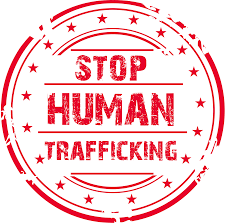Trafficking in Persons
Published July 15, 2017

The Role of Law Enforcement Agencies in Combating Trafficking in Persons
Trafficking in persons remains a menace all over the world. Research has proven that it is the fastest growing criminal business globally with very high profit, low risk and very little investment. Thousands of vulnerable people mostly children and youth, are lured into many activities they never aspired to do. This comes about as a result of the negligence, poverty, low self-esteem, unemployment, and ignorance among others. Innocent yet valuable lives are forced into domestic servitude, street prostitution, begging, illegal mining, street hawking and many more activities usually against their will but to the benefit of the trafficker. Trafficking is about exploitation, not just the transportation of the victim from one location to another. In recent times, cross country trafficking cases have been rising. People migrate from one country to the other, via Visa and Travel abroad agencies in search of positive opportunities. They end up being trapped and controlled by their foreign masters mainly for exploitative reasons.
As law enforcers, how can we join the train to put a stop to this crime?
Law enforcement plays a critical role in addressing the crime of Human Trafficking apart from identifying the act, means and purpose of trafficking within a legal frame work. While it is critical to hold offenders accountable for the full extent of their criminal activity, the law enforcement community can make other significant contributions to preventing this crime.
Education - Children especially fall victim to human trafficking due to lack of education. Offenders also take advantage of desperate individuals looking for a better life and make fake promises to them. Because victims are ignorant of their rights, they become very vulnerable to these traffickers. As law enforcers, we can help solve this by identifying potential victims of trafficking and educating them on their rights and the effects of being trafficked. This will give potential victims the knowledge to identify potential cases as well as the confidence to report criminals who lure them into such activity.
Investigations and Prosecution- Law enforcers have a major role to play by properly investigating reported trafficking cases and bringing traffickers to justice. Gathering all intelligence and available evidence of the cases can facilitate the successful prosecution of the offender. Although the nature of human trafficking may be complex to prosecute especially when the victims have been brainwashed by their masters, law enforcers have the responsibility to diligently pursue these cases no matter how long it takes and effort it will require. When trafficking cases are successfully prosecuted it will serve as a deterrent to potential perpetrators and increase awareness on the crime.
Providing Support Services for Victims- Victims are vulnerable people and need all the assistance available until they receive due justice for their ordeal. They can be provided with extensive provisions, including shelter, medical care, job training, financial assistance, etc. Law enforcement officials can help by exposing them to the various legal assistance services, provide psychological support and even escorts to court.
Interagency collaboration- Trafficking in persons is a multi-facetted crime which requires an interagency approach in order to resolve it effectively. Certain non-governmental organizations such as the International Organization for Migration (IOM) seek to champion this course. Law enforcers, in addition to collaborating with other agencies, can work with identified subject matter specialists and organizations for more insights towards eradicating the crime.
In conclusion, human capital is priceless and must be preserved in all instances. When law enforcers take proactive steps and efforts in investigating and prosecuting trafficking in person cases, order and safety in our communities is assured.
The RTC looks forward to receiving success stories on Trafficking in Persons from our Alumni community.